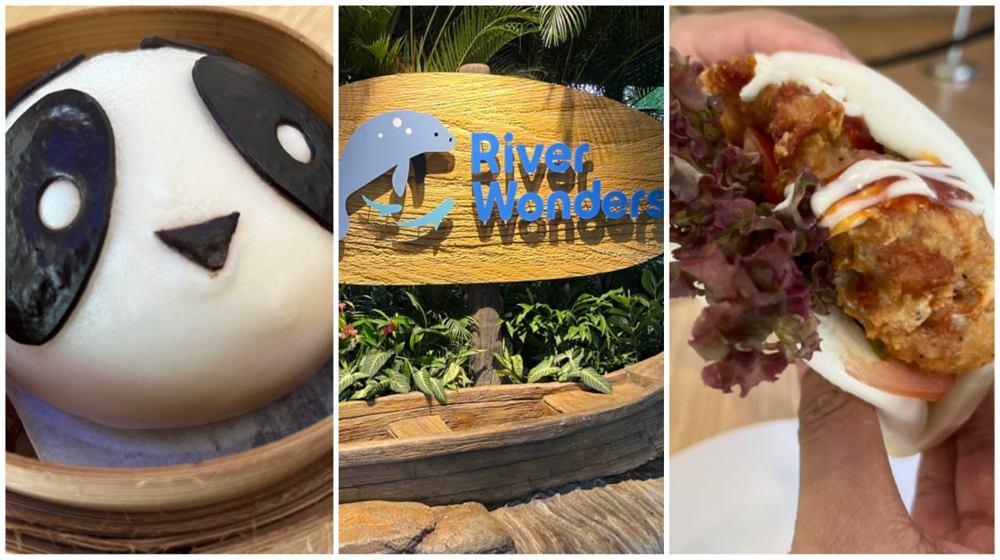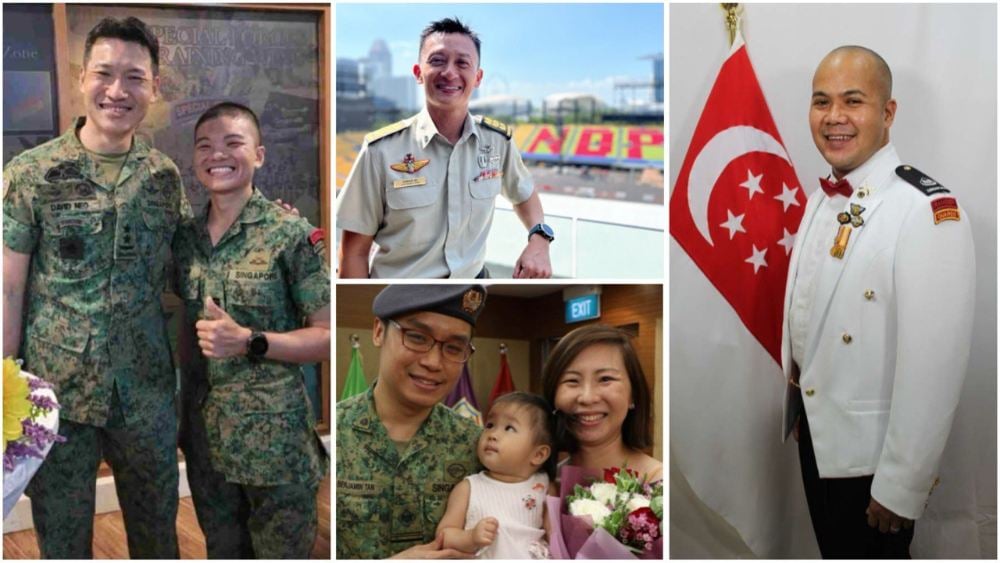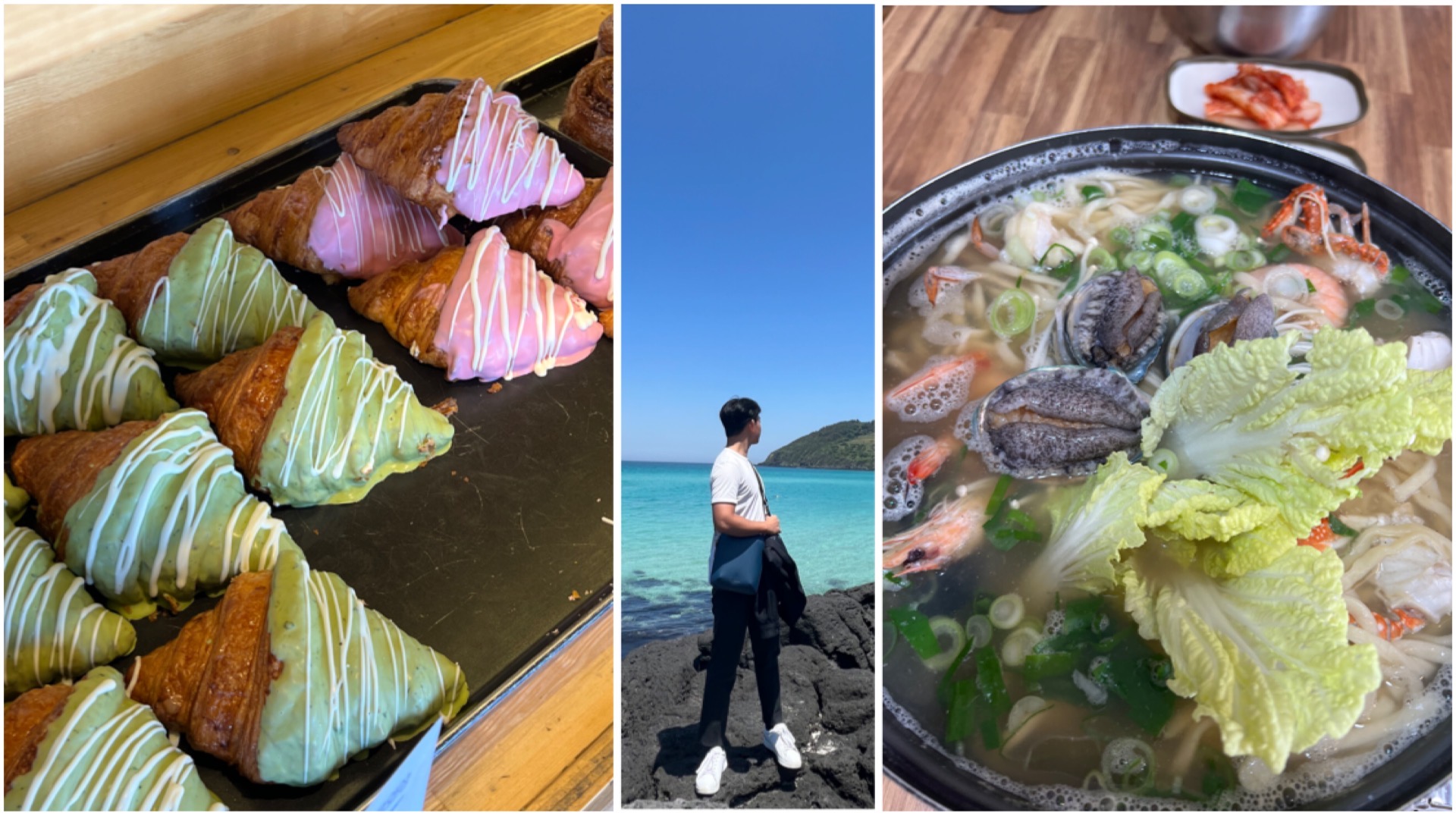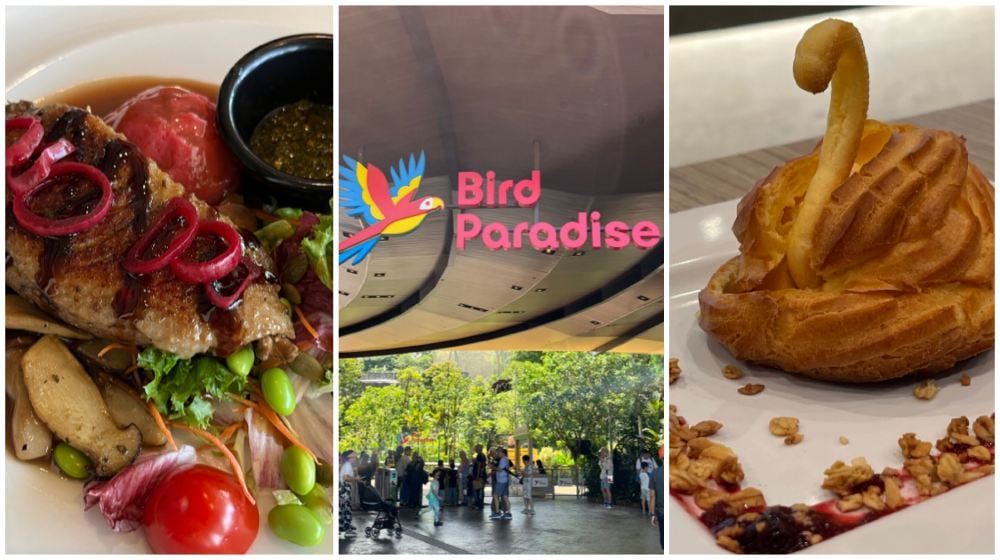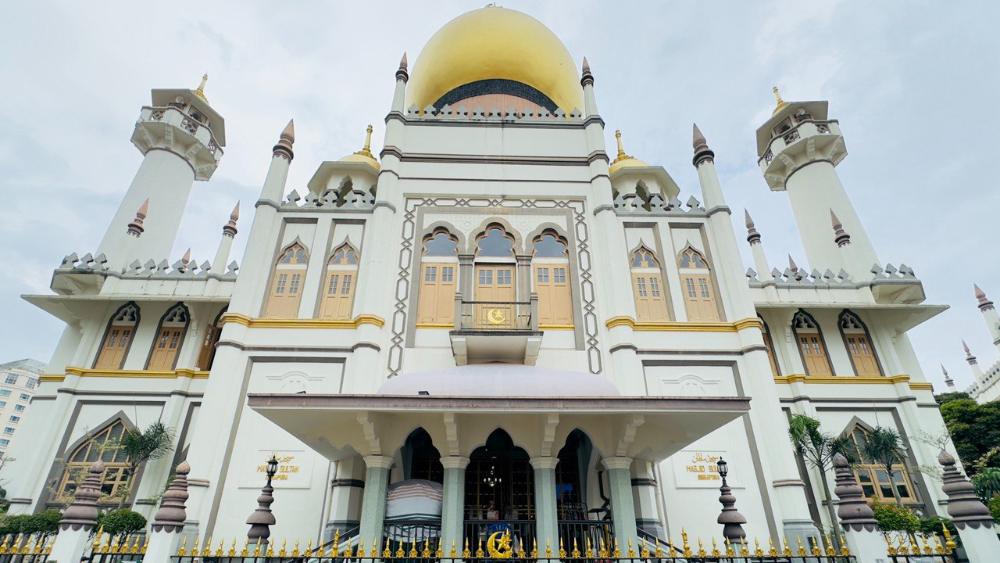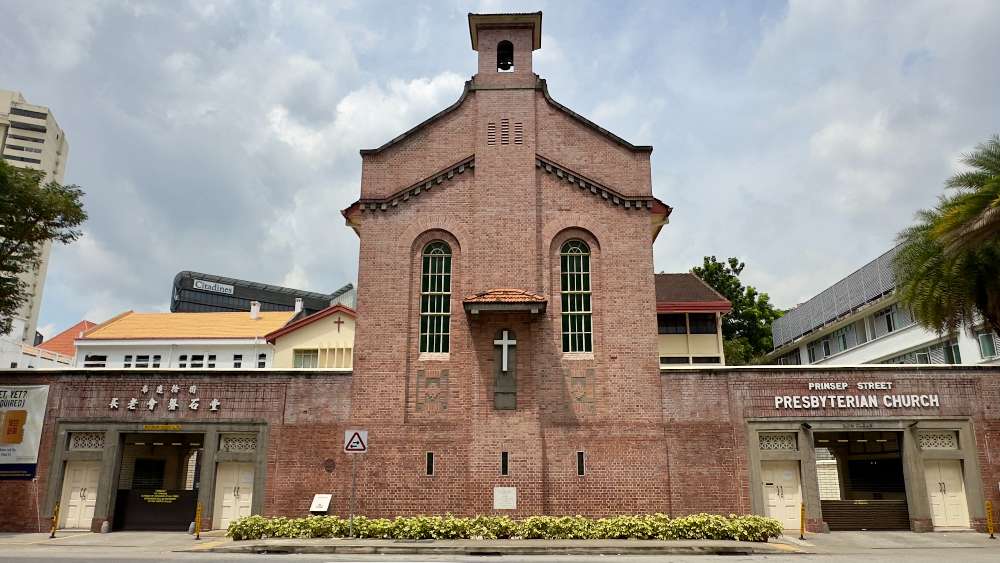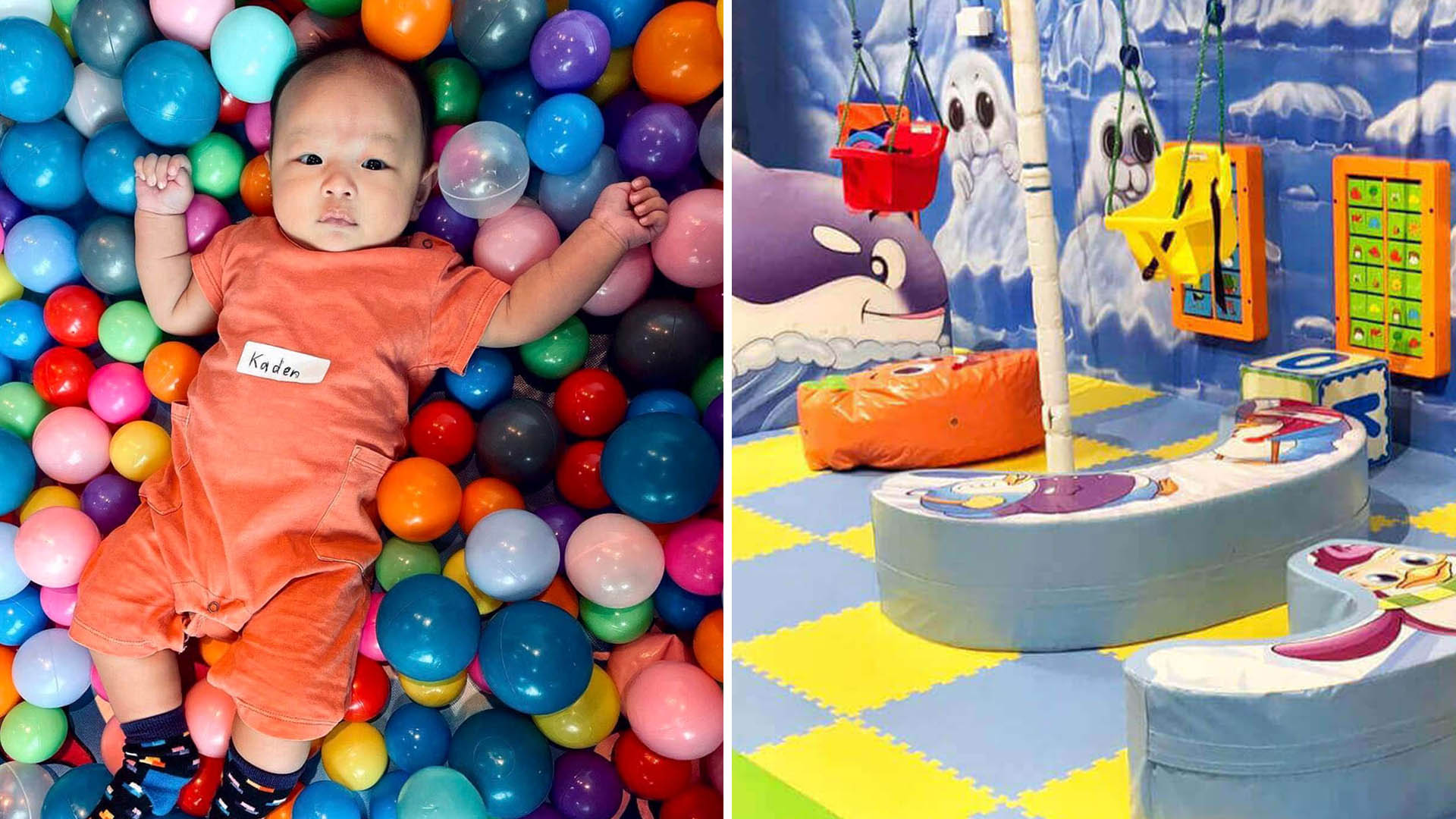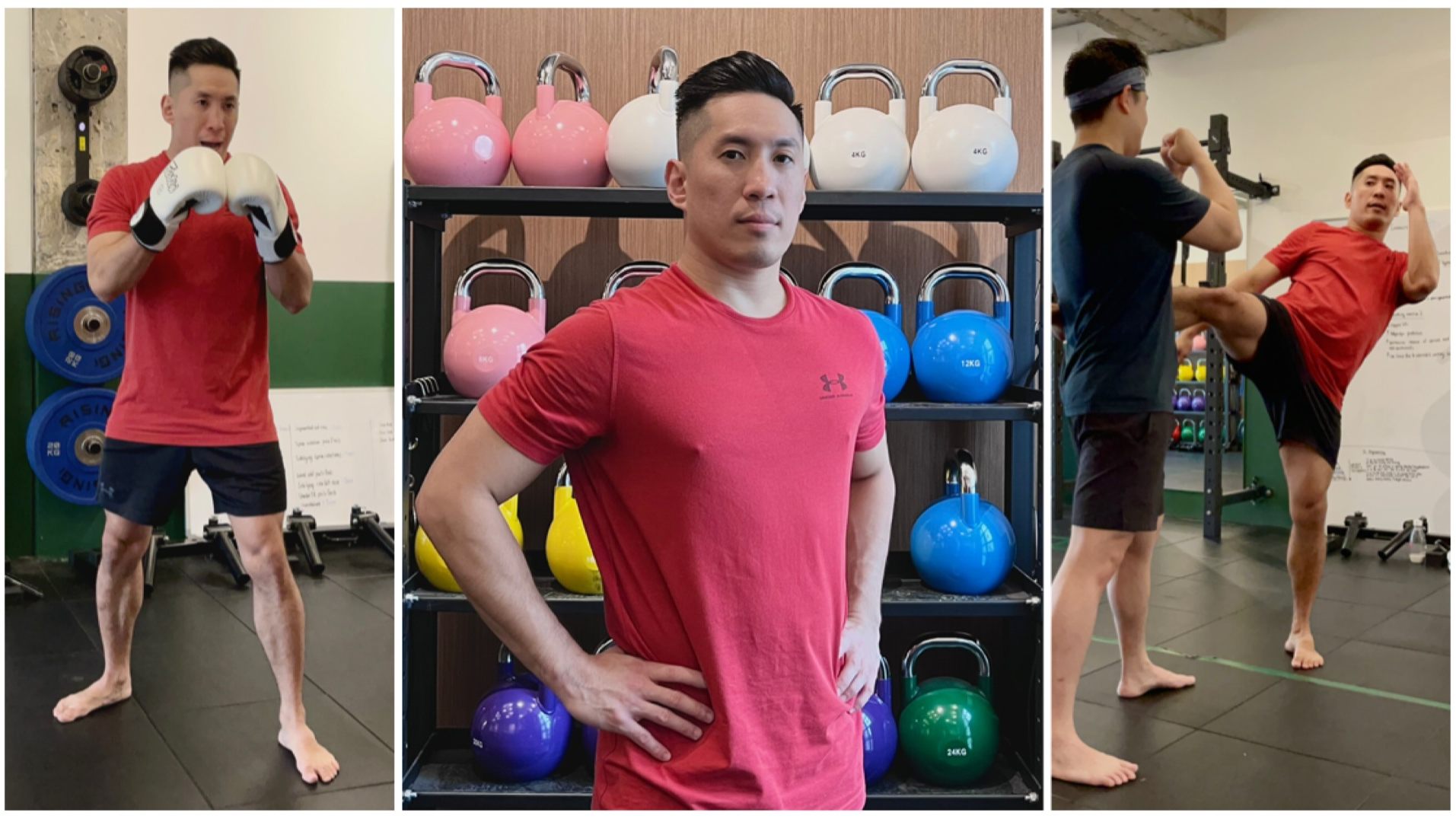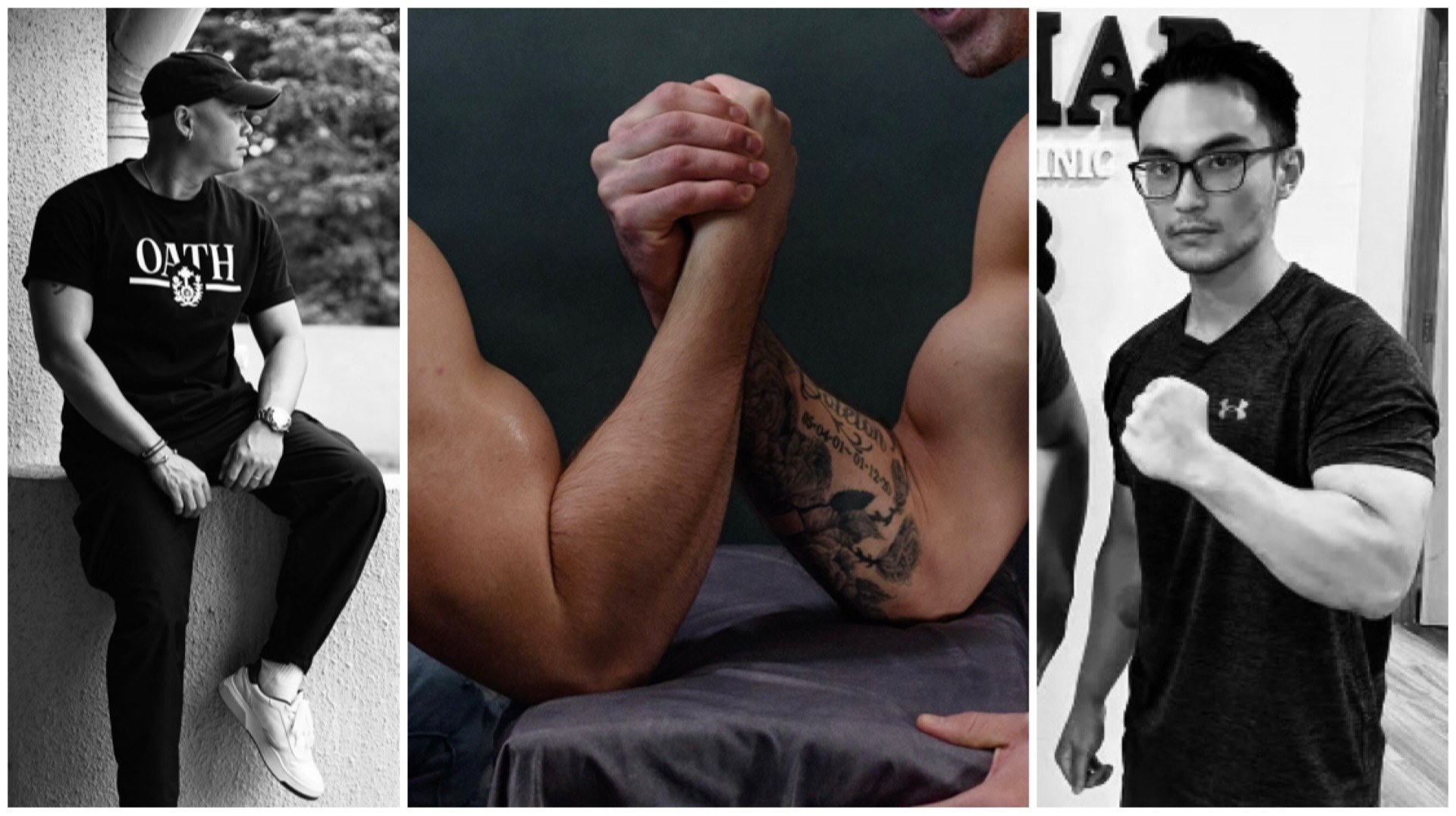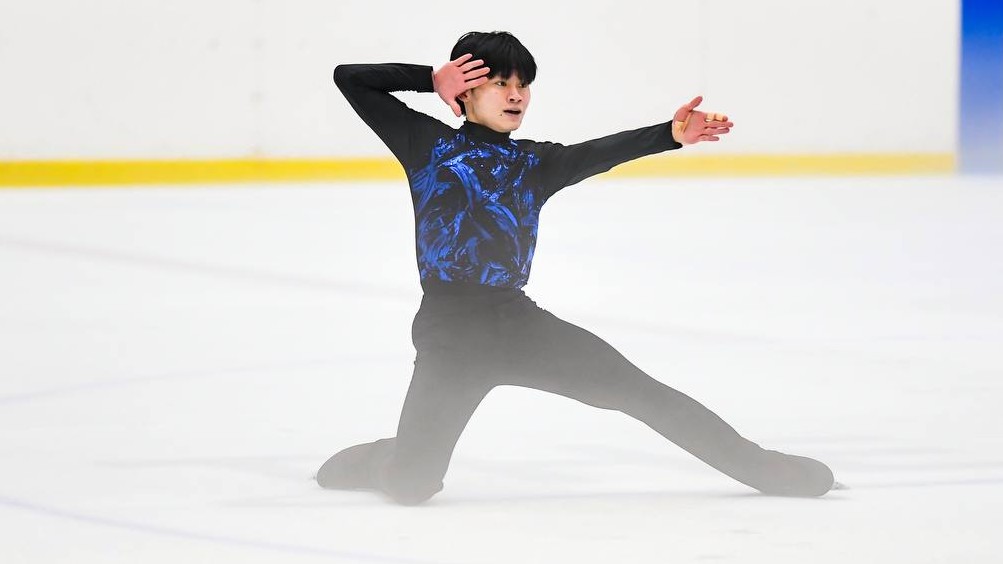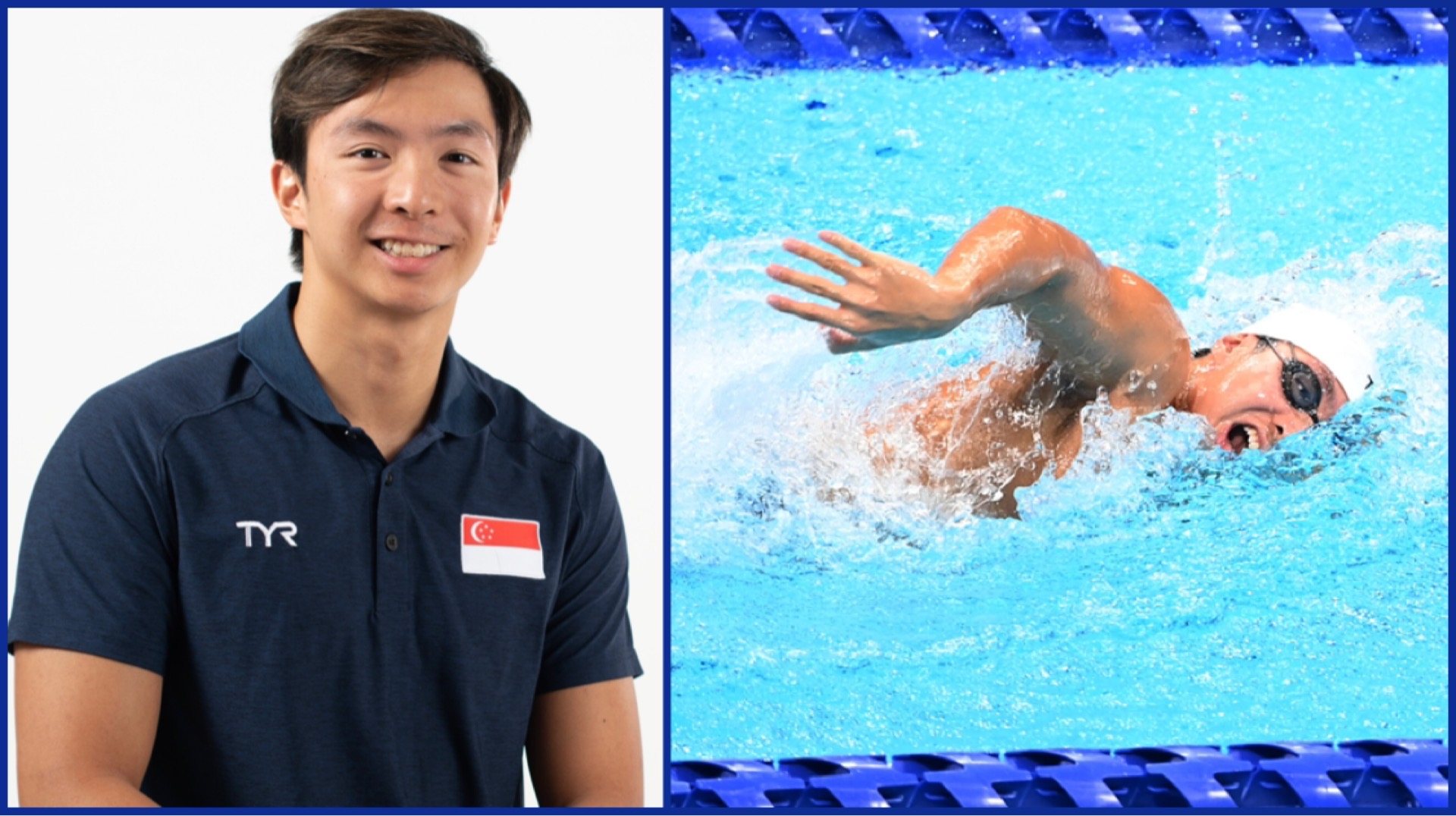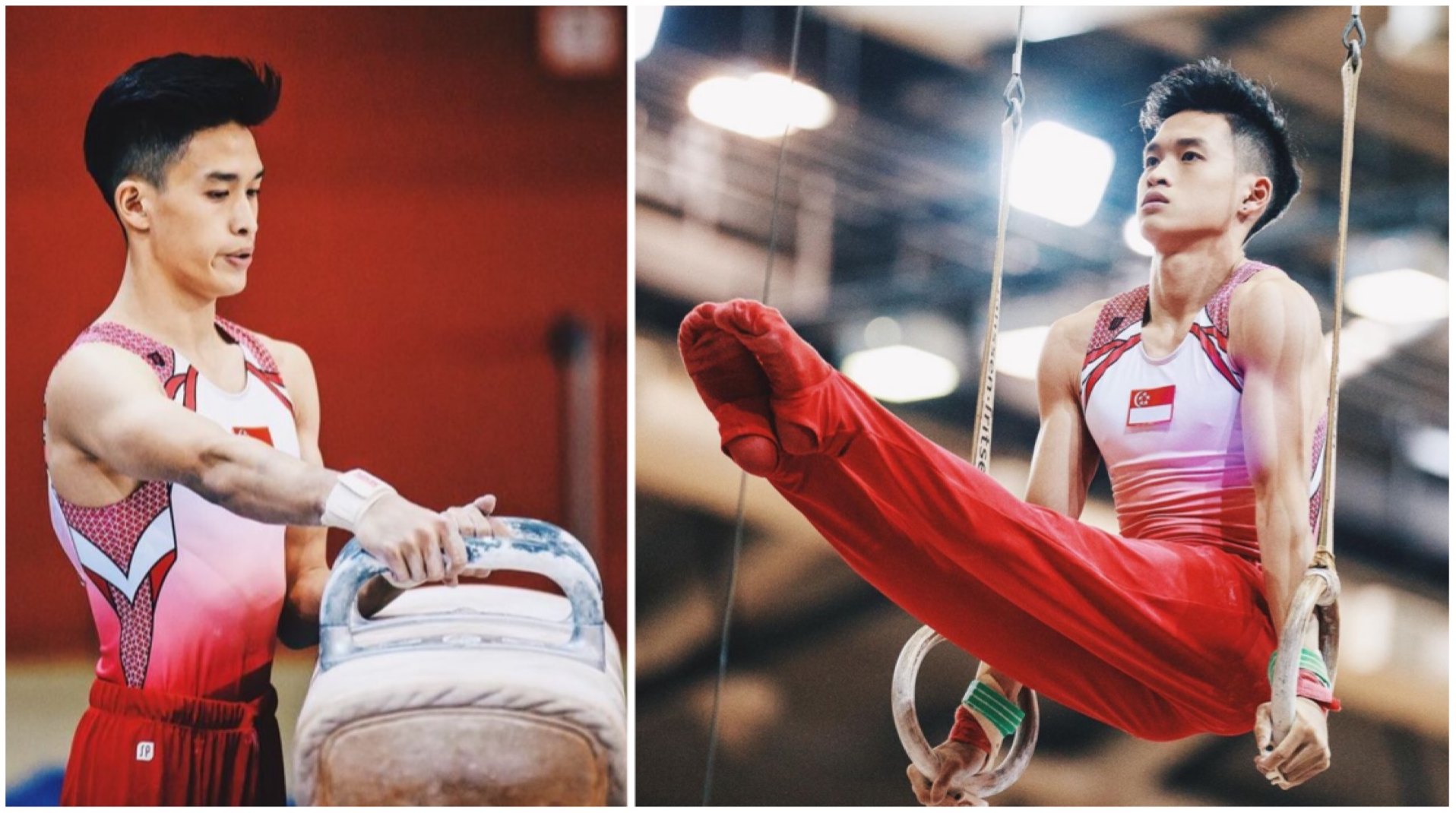Unstoppable: "Just Go For It" Is MMA Fighter Royston Wee's Fight Song
"If you want something, then go and do it" is pretty much the simple philosophy professional MMA-fighter turned full-time coach Royston Wee has followed in life to get to where he is.
Suffice to say, it's worked remarkably well for the 36-year-old, who holds the title of being the first and only Singaporean to fight in the Ultimate Fighting Championship (UFC) in 2014, and winning his debut UFC fight against Philippines' David Galera.
Today, he is a coach at Trapeze Rec Club, a wellness club at 27 Tanjong Pagar Road that has recently added martial arts classes to its offerings, and introduces us to the basics of Brazilian Jiu-Jitsu, Muay Thai, and wrestling.
We talk to Royston about his fighting journey, being focused and shutting out (and shutting up) the naysayers, and who his on-screen martial arts idol is.
At the age of 21 in 2008, you began training in this sport. How did it all start?
I graduated from poly and was waiting to enlist for NS, and I had about two or three months. I found a gym that was super cheap – got Muay Thai and everything! When I started training, I saw the Ultimate Fighter reality TV show on Starhub. I was like, wow – I kept visualising myself in the introduction of the show.
I trained hard and I was like, I don't know, maybe one day I'm gonna be a fighter, and maybe one day I'm gonna be a coach. So I got really obsessed and trained two, three times a day, six days a week. That continued for years.
Where did you do your national service, and how did you balance training with your NS commitments?
I was in the Air Force. I actually asked for nights out or time off so that I could go out to train. I was from Chong Pang Camp, and I would go back home to Punggol and then go to Clarke Quay to train. And then go back home, change into my No. 4 and then go back to camp. I did that for over a year during my NS.
Opportunity cam knocking in 2013 when UFC held tryouts in Singapore for a China edition. Tell us how you got to that life-changing moment.
I ORD-ed around the age of 24, and transitioned to part-time coaching. I was a newbie at that point in time but I still trained a lot. I wanted to earn some money so that I could sustain myself and compete at the same time. So I held back my studies for sport science.
Then around 25, 26, my dad kept pestering me that I should at least get a degree or something. So I went to get a double major in business [from Murdoch University]. When I almost graduated, I wanted to leave the industry. I wanted to go and fly [as a flight steward with Singapore Airlines], and that's when Ultimate Fighter Asia came. So I was like, oh, that's my calling!
You had to literally punch above your weight because they only had heavier weight classes. What was the greatest challenge about putting yourself out there?
The only thing that was stopping me or challenging me was that they didn't have my weight class (bantamweight). I was a really small guy. Back then, I fought at 57kg. They only had featherweight and lightweight, which is fighting at 66kg or 70kg.
But I told myself, you cannot just sit your ass in one corner and then wait for opportunity to come. Can lah but you gotta wait very long ah! Sometimes you gotta put yourself out there right? I don't like to sit there, with no opportunity, and just complain, complain, complain. I really don't like that kind of attitude.
So I registered and I went down to MBS [for the tryouts] – and really, I was the smallest guy! We did the tryouts and I was one of the few who got selected for the interviews.
You weren't selected as part of the main cast for The Ultimate Fighting: China after the tryouts, but did get a spot as a substitute. How did you come to fight in the UFC event here in Singapore in 2014?
As weeks passed, there was no news. Then one of the UFC scouting talents was like, "Royston, we are planning to do a first-ever UFC event here in Singapore. Would you be interested?" Of course!
Appearing in UFC took me about six years [starting from my poly days]. So in a way, I was lucky because there are people who train for decades, but still don't have the chance to fight in the UFC. I would say I'm lucky, but I believe your luck will only increase if you put yourself out there, really work for the things and grab hold of the opportunity when it knocks on your door.
I always tell people: if you want something, go and do it. Maybe you'll fail, maybe you won't, but at least you tried.
Being the first Singaporean to do or achieve something is glorious, but also comes with its own set of challenges. How did you cope with your UFC debut and win, especially mentally?
[When I won the fight], I was emotional man, really emotional. But at the same time just grateful that whatever happened, happened. While I was studying, I had stopped competing or fighting for about two years. So when the news broke that Royston’s gonna represent Singapore, you either had people who supported you or people who were like, ah, he hasn’t fought for two years, you know, he's gonna lose.
I love Singapore, but one thing I don't like is Singaporeans who don't support Singaporeans, especially when it comes to sports or artists or talents. [These people] will find a way to diss their own countrymen. I'm not saying that everyone is negative here, but you are gonna have people who go, "Aiyah our own Singaporean will lose one lah".
At that point in time, I was glad that I had a sports psychologist who helped me to calibrate my mental side. Halfway through, when was I training for the fight, my mind was like, "I'm going to win this fight. I'm gonna beat him, and I'm gonna shut all of them up." And what I learned is, whether you win or don't win, the naysayers will still talk.
But you meet so many people and you start realising like, you know what, I don't care. I do whatever, because at the end of the day, I'm comfortable. I live well, I do what I love, and I train. But I appreciate everyone who appreciates me and supports me even up till now. You just gotta put the energy in the right place, right?
@wonderwallsg We had a cool Muay Thai coaching sesh by MMA fighter Royston Wee, the first and only Singaporean to fight in the Ultimate Fighting Championship, who also won his debut UFC fight against Philippines’ David Galera in 2014. #muaythai #muaythaifighter #muaythaitraining #muaythailife #mma #mmafighter #mmafight #ufc #sports #gym #gymtok #gymlife #gymmotivation #gymrat ♬ Unstoppable (I put my armor on, show you how strong I am) - Sia
How different is 2022 Royston from 2014 Royston?
The Royston now - he's more mature, more knowledgeable, more wise. When it comes to training, whether I'm training or I'm coaching, there's more accountability. As a professional fighter back then, I was accountable for only myself. Now as a full-time coach I am accountable for myself and my students. As a coach, how you train, how you move, how you think, reflects on me.
I have students who train elsewhere, go to other gyms to try them out, and they [get told that they] move well and have nice technique. They will come back and tell me that, and I feel happy because they never tell outsiders who they trained under. It's just based on honest opinion and that makes me happy, because if I don't coach well then I wouldn't hear such praise for my students.
How much have mindsets about martial arts shifted from back in the day?
For the past few years, there have been a lot of grassroot events for boxing, Muay Thai, and MMA. Locally, bigger events like ONE Championship like to promote Muay Thai and MMA. So I think more and more people are educated about this sport. And hopefully parents of the younger generation are more open-minded about such training. Back then, if you trained in fighting, you were considered either uneducated or a hooligan. That's what I got when I started!
But I think now, people's mindsets have changed. I want people to understand that just because you train in combat sports or martial arts, it doesn't mean you are a violent person.
People who train consistently are not the dangerous ones. It's the ones who don't train and think that they can fight any time [who are the dangerous ones]. They have this fake confidence that they can fight – if they fought outside, they would die! Whereas, people who really train are training for what we call "controlled violence". That means we can control our aggression, whether to hit hard or go soft, or to back off, and not just go full out.
I feel that when people understand this and get more educated about the sport, parents are more willing to let their kids and the younger generation train. And maybe they can become professional athletes as they grow up, and build the scene even better.
At the same time stand up to bullies, right? You can never say, "eh don't bully my kid". Every generation, every year you are gonna have bullies. The best way is to make sure you prepare your kids well, but not to bully other people. I believe if they train properly in a proper gym with proper coaching, that will develop a sense of discipline, good attitude, determination and that kind of stuff.
For the current events, I feel like Singapore is small, so fight scene even smaller. In the beginning when I started out, every gym is an enemy. Every gym is like a rival. Like, you know dojo, it's a very old school kind of thinking. Still have a little bit now. Then how can you help grow the scene? I feel like everybody gotta help everybody and don't have to, "oh, my guy gonna fight your guy". If everybody can have a more open mindset to help each other then I believe there are gonna be more Singaporeans who can represent Singapore internationally in the fight scene again.
When it comes to martial arts on the silver screen, who is your celeb idol?
I like Donnie Yen. Usually, those martial arts actors learn wushu or whatever, because it's more for what you see on-screen, but they don't really know how to fight. There are a lot of movies that do MMA but I feel like, cannot make it. Whereas Donnie Yen really learns BJJ, Muay Thai, all these things.
One of his shows that I love the most, the film in which he puts every martial arts into one movie is "Flash Point". They did it really, really well, so I liked that.
Congrats on making such a successful transition from athlete to coach - and fulfilling your dream! Have you inspired family or close friends to take up sport?
Actually, a lot! My clients who became good friends then introduced [me] to their friends. I even have a client whose whole family trains with me – the daughter does BJJ, the son does Muay Thai.
I've got the younger generation walking up to me on the streets and saying, "I want to be like you in UFC." And I'm like, keep up that dream! Who am I to say you can't make it? But I'm gonna be realistic and not say you will fight in UFC one day, but just be consistent, and who knows, right? Don't give up on your dreams.
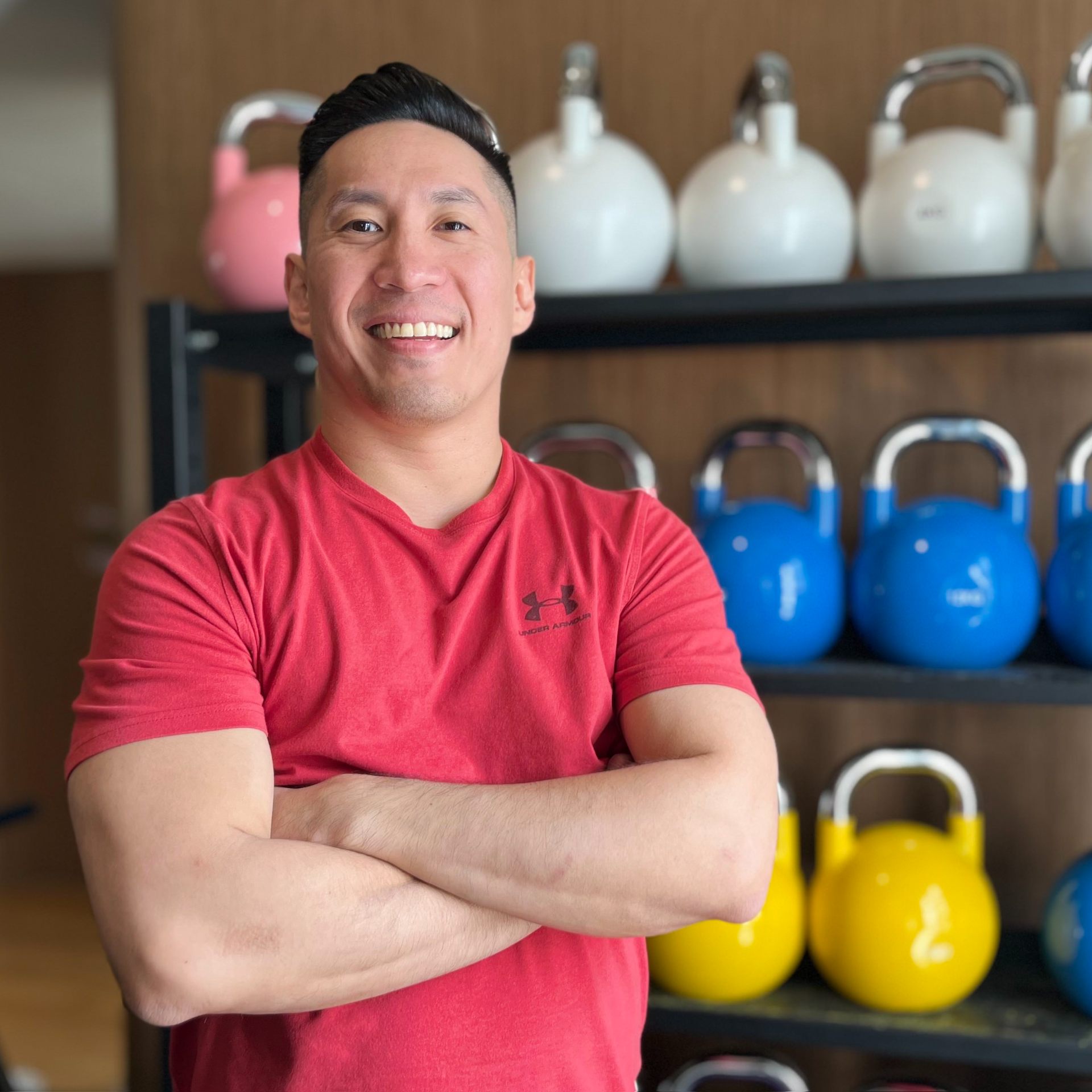
For the latest updates on Wonderwall.sg, be sure to follow us on TikTok, Telegram, Instagram, and Facebook. If you have a story idea for us, email us at [email protected].
